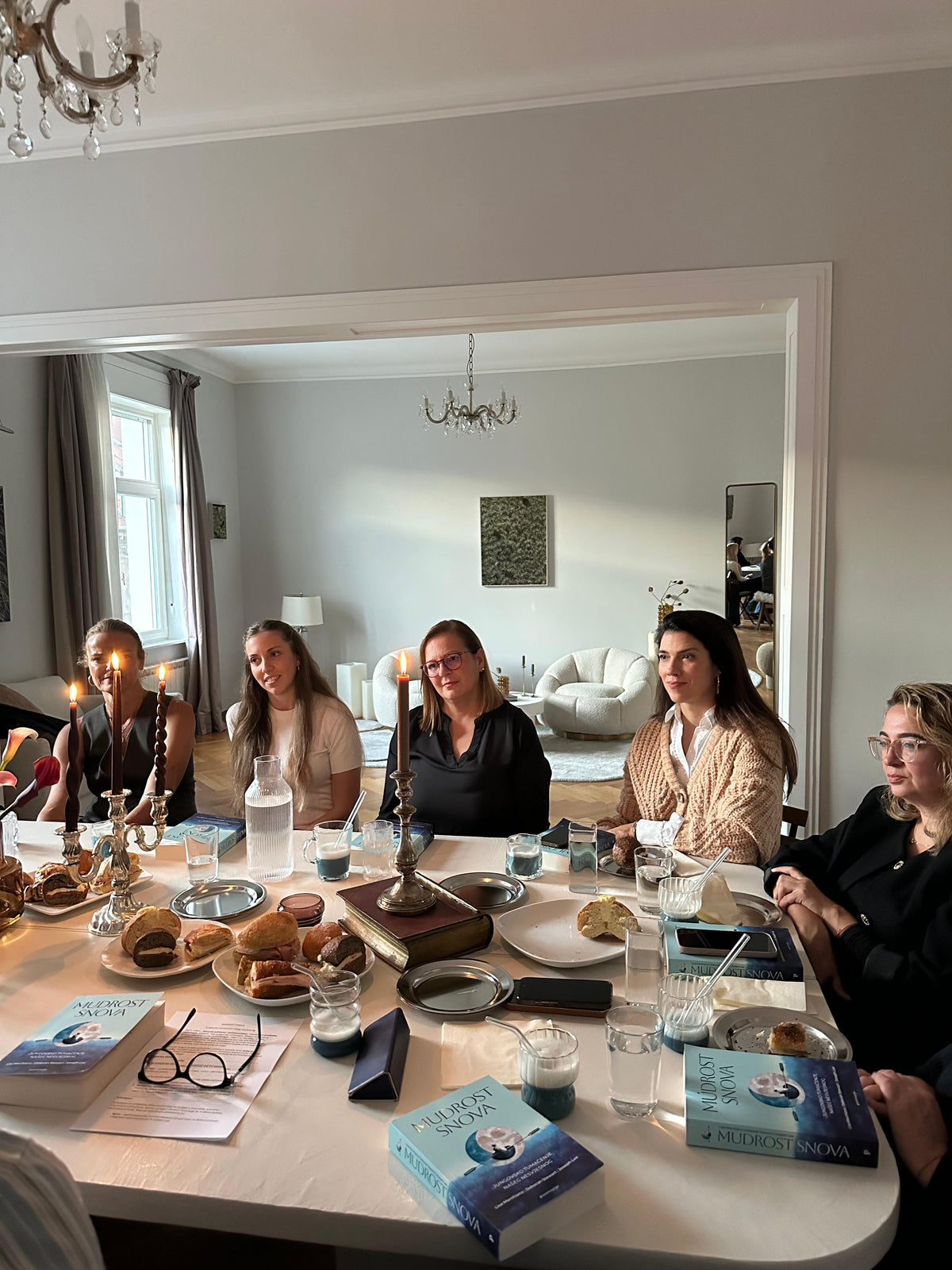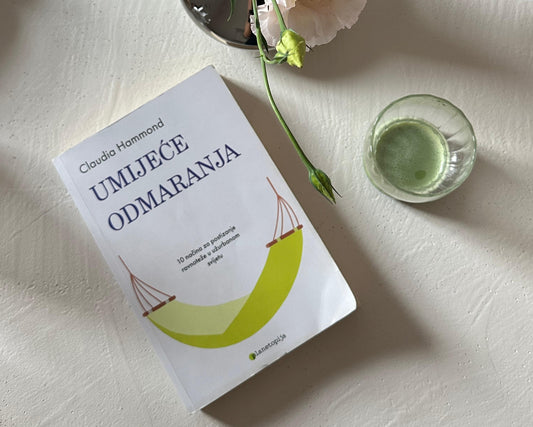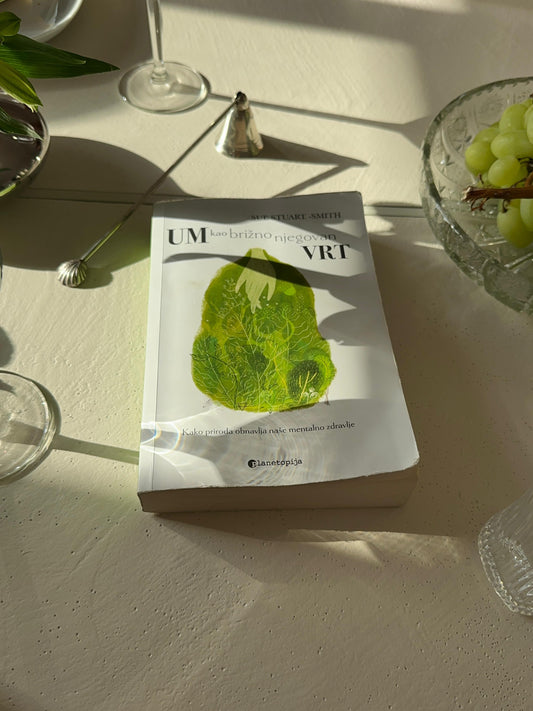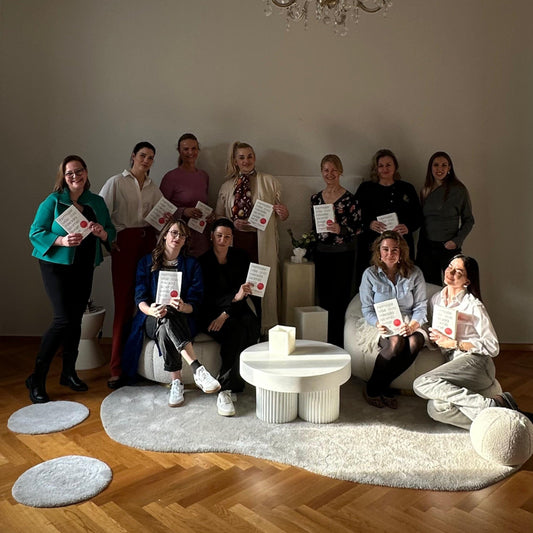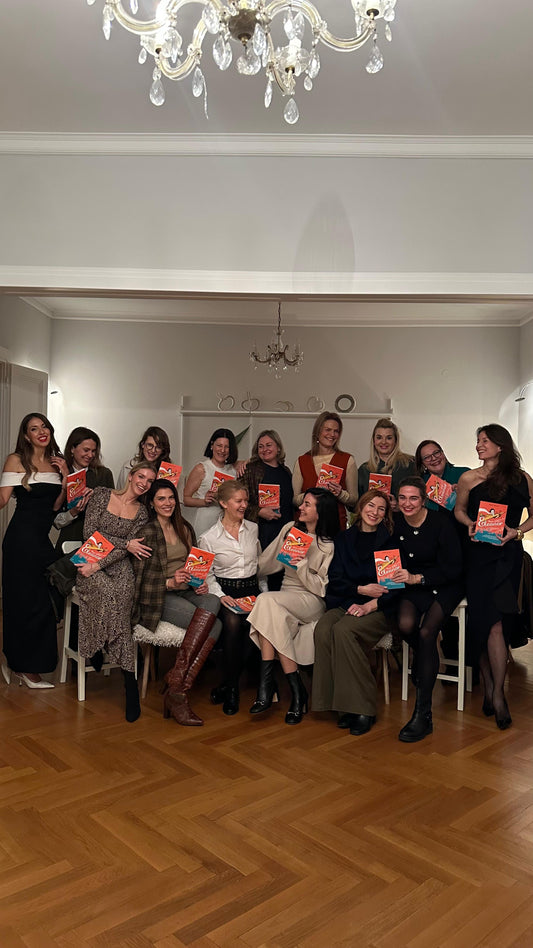The Wisdom of Dreams: When the Unconscious Calls Us Back to Ourselves
In October, within the Materia Book Club, we read the book The Wisdom of Dreams - a work that invites us to reconnect with that quiet, inner part of ourselves that we rarely hear. In a time of speed, fragmentation, and constant digital noise, this book reminds us that there still exists a space that belongs only to us - the space that opens at night, in dreams.
As more of us live in a state of scattered self - overwhelmed and constantly alert minds - it becomes harder to reach our inner wholeness. Our attention is fragmented into hundreds of small parts: notifications, deadlines, messages, obligations, information - both important and irrelevant. Technology, although it makes our lives easier, continuously distances us from the peace where we can hear ourselves.
The pace of modern life leaves little room for introspection, yet it is precisely in that space, in those rare moments, where Jung says the Self resides - the center of our psyche, the place where the conscious and unconscious meet.

What Would Jung Say About Our Time?
The great Swiss psychoanalyst Carl Gustav Jung wrote about modern man’s separation from his own soul already at the beginning of the 20th century. In his works, this separation is described almost as a spiritual illness of civilization - a loss of connection with the archetypal and instinctive, with that which cannot be measured or rationalized.
Jung believed that what is repressed into the unconscious always returns: through physical symptoms, dreams, coincidences, inner restlessness. What we refuse to see in waking life finds a way back to us in dreams.
According to Jung, dreams are the most direct bridge to the Self. Through them speaks that ancient, wise part of us that knows much more than we think we do - instinct.
In a world where we are increasingly detached from nature, from our bodies, and from silence, dreams remain the last refuge of authentic communication with the unconscious. They remind us that within us there still exists a space untouched by algorithms or habits - a space where myth, symbol, and archetype still live, the languages of the soul that can lead us back to ourselves.
Do Dreams Have Meaning?
Science has long tried to reduce dreams to a neurological phenomenon - a mix of imagination, memory, and emotion. But Jung saw something entirely different. For him, dreams are living symbols, a way for the unconscious to communicate with us. They are the voice of the psyche that doesn’t speak in words, but in images.
Dreams show us what the conscious mind cannot see; they connect us with archetypes, the shadow, and our inner truth.
If we knew how to listen more carefully to that nocturnal language, perhaps we would better understand the day - our fears, decisions, and desires.

But How Can We Listen to Our Dreams When We Barely Listen to Ourselves?
Our days are filled with noise, obligations, quick messages, and sounds constantly demanding a reaction. In such a world, it’s hard to find a moment that allows something to speak from within. That’s why we need mindfulness, yoga, journaling, or simply twenty minutes with a cup of matcha - just to feel ourselves again.
Dreams, along with those rare pauses we give ourselves, are the only remaining space where the soul can still call us back. They remind us that the inner world hasn’t vanished - it has only gone quiet.
Sometimes the feeling that lingers after waking is enough: melancholy, peace, longing, or fear. These are all messages, insights that don’t need words.
The Bridge Between Who We Are and Who We’re Becoming
That’s why our Book Club discussion focused on The Wisdom of Dreams. It brings us back to the natural language of the soul. Authors Lisa Marchiano, Deborah Stewart, and Joseph Lee - Jungian analysts and creators of the podcast This Jungian Life - have distilled their years of dream work into an accessible yet deeply transformative guide to the unconscious.
The book takes us on a structured journey through the world of dreams, grounded in Jung’s theory but enriched with practical exercises and personal stories. The idea is simple yet profound: dreams aren’t random fragments of the psyche, but messages from the depths - bridges between who we are and who we’re becoming.
Dreams Are Images of Feeling
Unlike popular approaches that reduce dreams to simplistic meanings, The Wisdom of Dreams emphasizes feeling as the key to understanding. Dreams, as the authors write, are “images of feeling.” Only when we dive into the emotional texture of a dream - whether standing on a sunny shore or facing a threatening wave - do we open the door to true insight. Feelings are gateways to archetypes, to the unconscious that wants to be felt, not merely interpreted.
Dream work is portrayed as an adventure, an inner journey toward wholeness. Each night offers, as Joseph Lee says, “a spoonful of medicine” through which the dream-maker gradually heals us. The book offers 69 keys - concrete tools to help us recognize symbols, follow patterns, and understand dreams more deeply.

Returning to the Mythic Core
In a time of meaning crisis and information overload, dreams become a bridge to what Jung called the transcendent. They remind us that within each of us lies a mythic core that awakens in uncertainty - and that every night offers a lesson on living more deeply and truthfully.
Today, it seems we want to explain everything: every emotion, every phenomenon, every discomfort. As if there’s no room left for mystery.
Everything must have a reason, a measurement, and proof, and we slowly lose what makes us human - that innate sense of wonder.
Dreams are here to show us that there still exists a realm beyond reason - a place where symbol and feeling, consciousness and the unconscious, end and beginning meet. The real question isn’t whether dreams have meaning, but what that meaning asks of us.
Because dreams are how the soul still tries to reach us - and if we let them enchant us again, we might relearn how to marvel at the world, and at ourselves.

